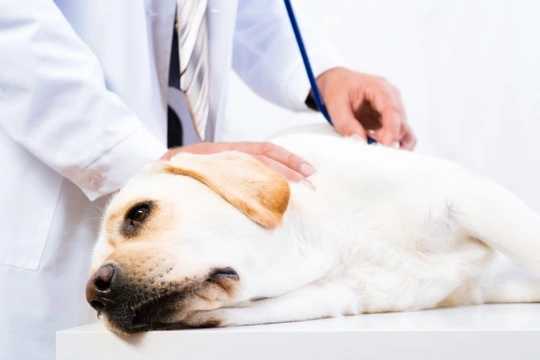
Keeping Terminology Simple When a Pet is Diagnosed with Cancer
It is truly devastating when a beloved pet is diagnosed with cancer and it's understandable that when a vet tries to explain things, owners often just switch off. Not only are they in shock, but the terminology too can be confusing which makes it a lot to take in. People understand words like chemotherapy and remission but other terms like metronomic and others are not so easily understandable.
These days, more vets try to use more simplistic language so owners find it easier and they do make the time needed to explain the smallest of details about a dog, cat or other pet's condition. This goes a long way in helping owners understand what the outcome would be of their diagnosis. It is important for pet owners to be told at what stage the cancer has reached but this can only be achieved if a biopsy or aspiration has been done on a tumour to discover if indeed, it is cancerous or not.
This is why it is so important for owners to understand the different terms used which includes the word "stage" among many others. But what does "stage" actually mean when referring to cancer? When a vet talks about the various stages, they are referring to the areas of your pet's body where they have found there could be evidence of cancer. Where veterinary medicine is concerned, the model used is the same as that for humans and which have been set out by The World Health Organisation (WHO) although there is no similar governing body in veterinary medicine.
How Vets Determine a "Stage"
Vets have very accurate "staging schemes" in place for a lot of the more common cancers seen in dogs and cats although this is to a lesser extent where our feline friends are concerned. However, without the correct essential examinations and diagnostic tests, a vet would not be able to determine at what stage a cancer actually is. Where lymphoma is present in a dog, the vet would need to carry out a complete blood count, chemistry panel, urinalysis and lymph node biopsy but they would also need to take X-rays, do a CT scan and ultrasounds as well as other in-depth tests of the liver, spleen and bone marrow.
Often the cost of the more in-depth tests can cost run into thousands of pounds and vets recommend that the money would be better spent on trying to battle a lymphoma cancer in order to prolong a dog's life and make them more comfortable with their condition. As such, a vet may well recommend carrying out basic tests to assess the dog's condition and the status of the cancer in order to provide owners with a reasonable prognosis on the outcome of the cancer.
However, if owners have a good pet insurance plan in place, a vet would be able to have a lot more scope when it comes to the sort of tests they would be able to do without the worry of prohibitive costs coming into the equation. The more information there is available about a cancer, whether it's lymphoma or other, the better the chances a vet has of offering the right type of treatment to prolong a pet's life.
The Higher the Stage – The Poorer the Outcome
Much research into pet cancers has shown that the higher the stage of a disease, the poorer the outcome would be expected to be and this is especially true of lymphoma in dogs. However, this is not always the case because even if the disease is widespread throughout the body, it can depend on the general health of a dog or cat at the time of the diagnosis as to the outcome.
When it comes to the many types of tumours, staging tests are extremely important because these allow vets to recommend a treatment and to gauge a response time. This in turn allows owners to make the right kind of decision of whether the tumour should be treated or not. The problem with many cancerous tumours is they are so unpredictable and this makes it very hard for vets to offer owners a realistic prognosis and outcome. This is one of the reasons why vets often like to concentrate on how a pet is feeling and to establish realistic options open to them when it comes to treatments.
Conclusion
If your pet has been diagnosed with a form of cancer, you need to take time out to get over the terrible news before sitting down with your vet and discussing your pet's condition and the possible outcome. It is only once you have come to terms with the fact your beloved pet has this dreaded disease that you would be able to take in all the veterinary terminology that's used to describe their condition. You should also ask the vet to put it all in very simple terms so that you fully understand what kind of tests would need to be done and the possible outcome.



